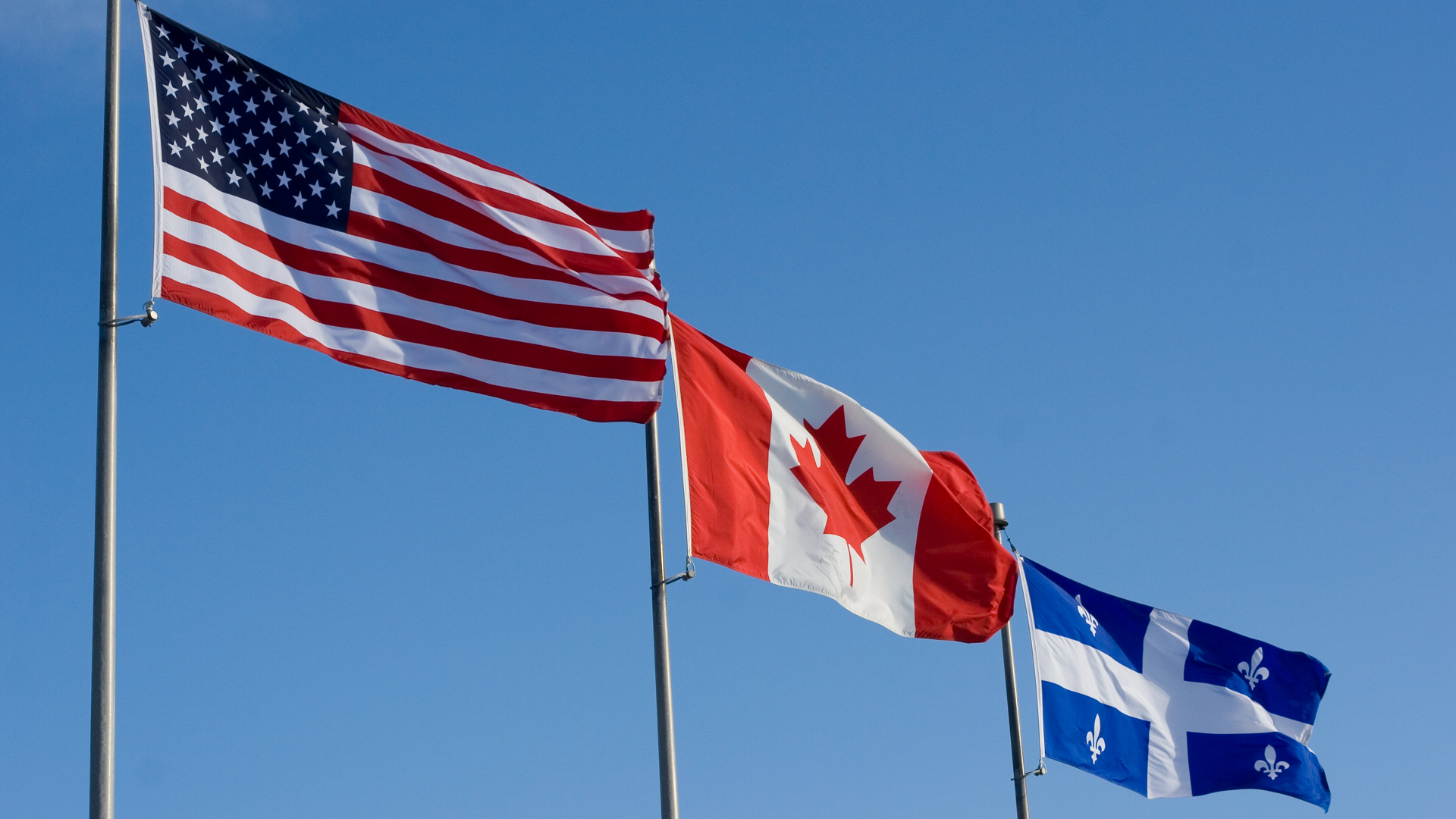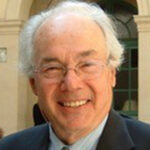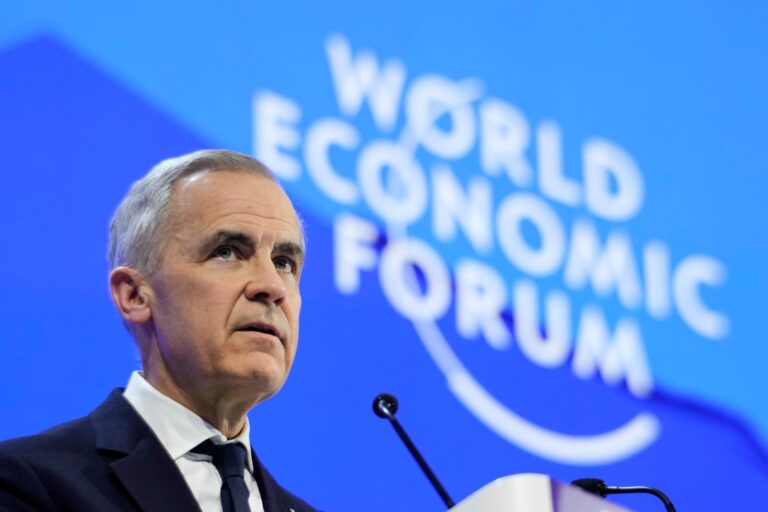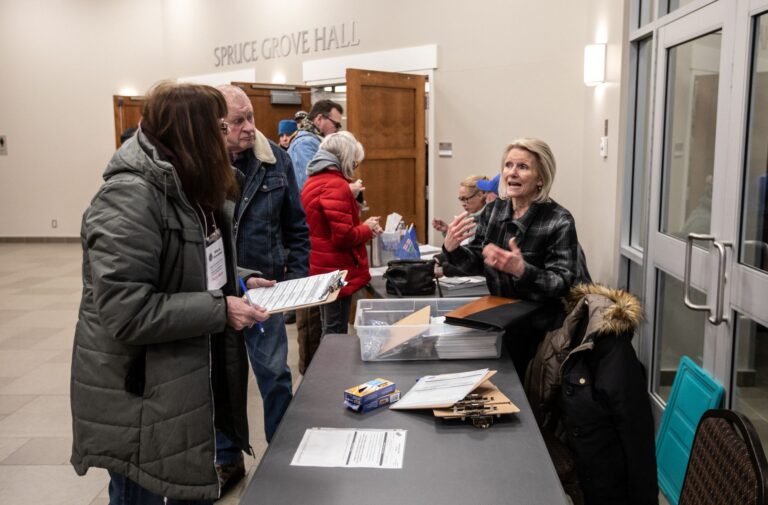(Version française disponible ici)
It is impossible to seriously consider Quebec’s potential sovereignty without taking into account the reaction of its powerful neighbor to the south. Canada’s relationship with the United States has shaped its entire history, and it would be unthinkable to ignore that should a province secede.
As early as 1977, after the Parti Québécois came to power promising to pursue Quebec’s political independence through a referendum, U.S. President Jimmy Carter was asked how his country would react to such a project. His answer can be summarized in three points:
- The United States would not intervene in Canada’s internal affairs and would not get involved in its constitutional debate.
- The United States viewed Canada as a valued partner and supported anything that might strengthen its unity and cohesion. Washington therefore expressed a preference for a united Canada over Quebec’s secession.
- The future of Canada was up to Canadians to decide; the United States would respect their democratic choice.
The friendly climate of 1980
These principles became the cornerstone mantra of U.S. policy toward the Quebec sovereignty movement.
Parti Québécois strategists understood that trying to persuade Americans of the merits of independence was futile. Instead, they focused on showing that sovereignty would be achieved democratically and in a spirit of friendship with their neighbor.
The United States’ discretion during the 1980 referendum campaign confirmed that this strategy was paying off.
The crucial economic link in 1995
By 1995, the U.S. factor had become more significant, partly because Quebec had supported the 1989 Free Trade Agreement (FTA) and the 1994 North American Free Trade Agreement (NAFTA) with Mexico. Quebec’s overwhelming support for the Mulroney government in 1988 had been decisive in the implementation of the FTA.
For sovereignists, economic relations with U.S. now seemed more crucial than ties with other provinces. In the 1990s, Quebec showed unprecedented confidence in its economic future. The anxiety that had prevailed during the 1980 referendum seemed to have subsided.
The Commission on the Political and Constitutional Future of Quebec (better known as the Bélanger-Campeau Commission), created by Robert Bourassa in 1990, was headed by two financiers. Jacques Parizeau, the leader of the Parti Québécois and a major proponent of the sovereignty project, was himself an economist. Exports to the United States accounted for nearly 80 per cent of Quebec’s international trade, driving surpluses in its most dynamic sectors.
The “Yes” campaign therefore argued that cutting political ties with Canada would not harm Quebec’s economic relationship with the United States and that Washington would respect the will of the people.
A viable project to Americans
American decision-makers had no doubts about the viability of an independent Quebec. An internal State Department study declassified in 1989 and entitled The Quebec Situation: Outlook and Implications stated:
“There is […] no question regarding the basic long-term viability of an independent Quebec in the economic sense or in regards to its ability to be a responsible member of the family of nations.”
In a 1992 article entitled “An Independent Quebec?” in the American Bar Association’s national security journal, Dwight N. Mason, former deputy chief of mission at the U.S. Embassy in Canada, confirmed that an independent Quebec was indeed feasible and that its government would be capable of managing independence.
Other American observers assumed that secession would not be immediate and that they would have time to develop an appropriate policy toward a sovereign Quebec.
If English Canada resisted an economic union with the new state, the United States could apply pressure on its northern ally. U.S. officials involved in trade with Quebec emphasized that Quebec would remain a preferred partner regardless of its political status.
Bolstered by these prospects, “Yes” campaign leaders used the argument to reassure voters: Quebec would continue to benefit from the North American network of alliances and economic exchanges. This, however, did not prevent American intervention in the “No” campaign.
When the ambassador gets involved
For American politicians, balancing non-intervention with support for Canadian unity proved difficult.
In Washington, political considerations often influence key diplomatic appointments. Ambassadors are not always career diplomats and may find it harder to resist involvement in the domestic politics of the host country.
James J. Blanchard, ambassador to Ottawa in 1995 and former governor of Michigan, became actively engaged in the referendum. As head of mission since 1994, he had forged close ties with many Canadian leaders, including Prime Minister Jean Chrétien. Convinced that Canadian unity was at risk, he believed his country had to act to protect the integrity of a loyal ally.
Blanchard repeatedly warned that automatic recognition of a sovereign Quebec within institutions such as NAFTA, NORAD and NATO could not be assumed.
Clinton’s shocking statement
Just days before the October 30 vote, Blanchard secured a statement from Secretary of State Warren Christopher, cautioning that the United States could not take for granted that its current relationships would continue unchanged with a new entity.
Shortly before the referendum, President Bill Clinton himself declared that Canada was a model nation and that secession seemed incomprehensible to him.
Did American diplomacy abandon its commitment to non-intervention and respect for Canadians’ choice? Not entirely. At other levels, U.S. officials showed restraint. Stephen R. Kelly, consul general in Quebec City from 1995 to 1998, maintained excellent relations with all parties and displayed exemplary discretion — likely keeping Washington well informed about Quebec’s complex political landscape.
Optimism faded
Did the United States influence the à vote on October 30, 1995? Perhaps partly. But the relationships Quebec forged with many American officials may also have reassured many voters about future relations with their southern neighbor.
Thirty years later, that optimism has faded. Although Quebec still has friends in the United States, this neighbor is no longer a reliable economic partner. There is widespread disillusionment about Quebec’s place in North America. Whatever the future holds, this reality cannot be ignored.
This article is based on the book by Louis Balthazar and Alfred O. Hero Jr., Le Québec dans l’espace américain, Montreal, Québec-Amérique, 1999.












